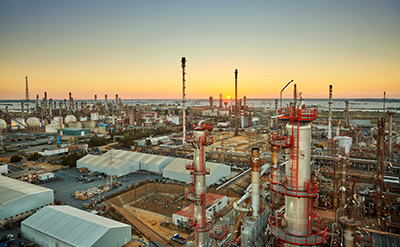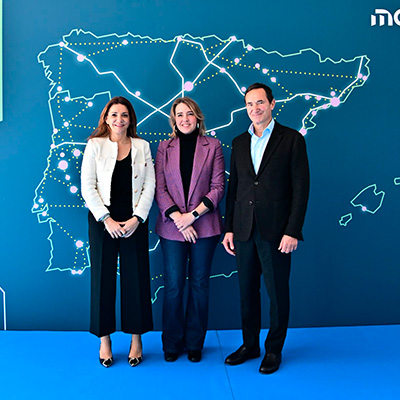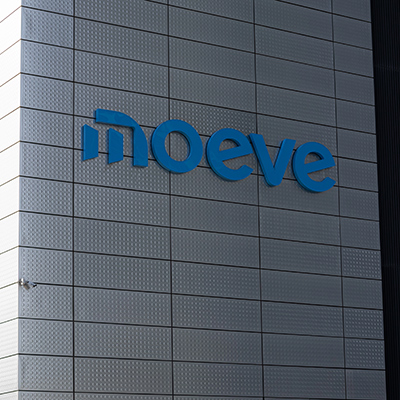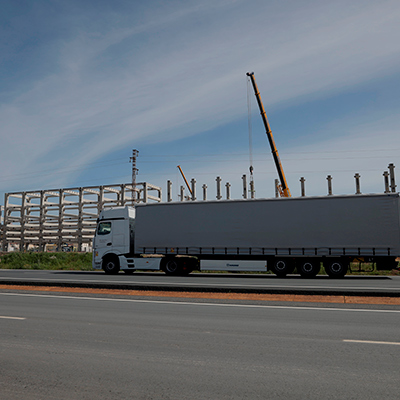The company’s commitment to the circular economy will help it achieve its 2030 strategy 'Positive Motion'
In addition to increasing the recovery of these waste products, Cepsa has also recycled others that were previously taken to landfills, such as biological sludge (wastewater) or residual asphalt. Likewise, by finding synergies with other companies, Cepsa has undertaken different projects, such as the partnership it has with Saint-Gobain Weber to recycle 1,000 tons of waste per year, or the agreement with the public company Aguas y Servicios del Campo de Gibraltar (ARCGISA) to use recycled water from the future wastewater treatment plant in the region in its industrial facilities, which will be used to produce green hydrogen.
Mar Perrote, Cepsa's Director of Safety, Environment and Quality, highlighted: "In 2023, we set the base of our new circular production model towards zero waste, which will allow us to achieve the goal of our 2030 strategy, 'Positive Motion', and become leaders in the energy transition."
Strengthening its commitments to the circular economy
Cepsa recently obtained the Circular Economy Strategy certification from AENOR, becoming one of the first companies to do so. This certification demonstrates that there's a management model for the circular economy and that senior management are involved in it, providing organizations with a reference for determining the relevance of key issues and for decision-making.
Sustainability criteria are one of the company's priorities. To achieve its environmental objectives, Cepsa focuses on three areas of action: water, waste, and biodiversity. For water, it has proposed to reduce freshwater withdrawal by 20% in water-stressed areas by 2025 (compared to 2019). In terms of biodiversity, the company's efforts also focus on promoting actions that have a positive impact on the environment of its future renewable projects.
With the aim of promoting circularity, Cepsa will progressively replace fossil raw materials with renewable and recycled sources. The company is committed to increasing the share of renewable and circular raw materials in its Energy Parks to 15% by 2030. This will involve using 2.8 million tons of raw materials by 2030, 75% of which will be second-generation (2G) and other waste that would otherwise be discarded. In this sense, thanks to the company's commitment to innovation, Cepsa has managed to produce circular phenol from single-use plastics in a pioneering trial in Spain.
By 2030, Cepsa aims to lead second-generation biofuel production in Spain and Portugal, producing it from organic waste, used cooking oils, or agricultural waste, among others.
- Cepsa managed to minimize, recycle, and recover 6,390 tons of operational waste in 2023, 73% more than the year prior, preventing more than 3,000 tons of CO2 of emissions
- By working with new technologies, waste co-processing projects, and synergies with other companies, the company continues to move towards a zero-waste business model
- The energy company’s Circular Economy Strategy has been recognized with AENOR certification. Through this roadmap, Cepsa pledges to maximize the use of waste as a raw material, minimize freshwater withdrawal, and ensure biodiversity protection
In addition to increasing the recovery of these waste products, Cepsa has also recycled others that were previously taken to landfills, such as biological sludge (wastewater) or residual asphalt. Likewise, by finding synergies with other companies, Cepsa has undertaken different projects, such as the partnership it has with Saint-Gobain Weber to recycle 1,000 tons of waste per year, or the agreement with the public company Aguas y Servicios del Campo de Gibraltar (ARCGISA) to use recycled water from the future wastewater treatment plant in the region in its industrial facilities, which will be used to produce green hydrogen.
Mar Perrote, Cepsa's Director of Safety, Environment and Quality, highlighted: "In 2023, we set the base of our new circular production model towards zero waste, which will allow us to achieve the goal of our 2030 strategy, 'Positive Motion', and become leaders in the energy transition."
Strengthening its commitments to the circular economy
Cepsa recently obtained the Circular Economy Strategy certification from AENOR, becoming one of the first companies to do so. This certification demonstrates that there's a management model for the circular economy and that senior management are involved in it, providing organizations with a reference for determining the relevance of key issues and for decision-making.
Sustainability criteria are one of the company's priorities. To achieve its environmental objectives, Cepsa focuses on three areas of action: water, waste, and biodiversity. For water, it has proposed to reduce freshwater withdrawal by 20% in water-stressed areas by 2025 (compared to 2019). In terms of biodiversity, the company's efforts also focus on promoting actions that have a positive impact on the environment of its future renewable projects.
With the aim of promoting circularity, Cepsa will progressively replace fossil raw materials with renewable and recycled sources. The company is committed to increasing the share of renewable and circular raw materials in its Energy Parks to 15% by 2030. This will involve using 2.8 million tons of raw materials by 2030, 75% of which will be second-generation (2G) and other waste that would otherwise be discarded. In this sense, thanks to the company's commitment to innovation, Cepsa has managed to produce circular phenol from single-use plastics in a pioneering trial in Spain.
By 2030, Cepsa aims to lead second-generation biofuel production in Spain and Portugal, producing it from organic waste, used cooking oils, or agricultural waste, among others.




